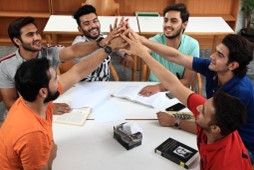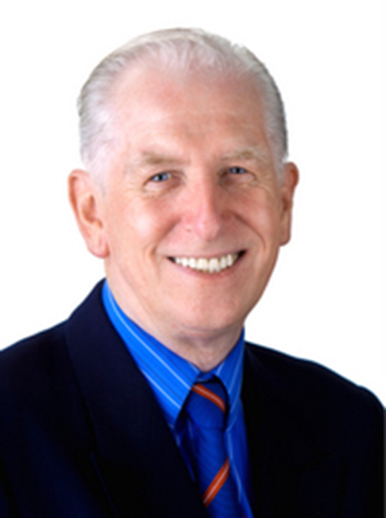By Dr Charles Margerison.
Psychologist.
How can we help children of all ages to convert information into effective action? That is a major challenge teachers and parents are facing.
The traditional assumption has been that the key function of schools was to give students knowledge to pass examinations. This gave them the passport to higher education and careers.
Traditionally, schools have provided academic knowledge, physical education and some general career guidance. However, the emphasis on mental health education in relation to careers has only recently been a focus.
As an example, in the UK, The Education (Careers in Schools) Act was recently passed. It means that all schools and colleges must now provide career related resources as an integral part of the curriculum.

Schools are now scrambling to find teachers with experience to make the link between curriculum and careers. It means that teachers who previously were specialists in science, mathematics, languages, history and other topics, measured by the exam grades of their students, now have a new purpose.
Under the new Act, which comes into force in April 2023 in the UK, teachers will have to find ways and means of making their lessons career relevant.
I have made a study of over 500 amazing achievers and believe that schools can start by helping students making the link between character and career education. This requires the personal learning from action, rather than traditional teaching only.
In my research, I studied the lives of amazing people like Marie Curie, the only woman to win two Nobel prizes in different areas of Science, Thomas Edison, the disabled inventor with almost 2000 patents, and Nelson Mandela the former President of South Africa, who survived 27 years in prison.

They are exemplars from whom students can understand the essence of character strengths and how to convert ideas into action. They all developed their own ‘can do spirit’ and language.
This is the universal language of people who make things happen. That is why Steve Jobs is remembered. He took action on his ideas to form the Apple Company.
That is why Helen Keller is remembered. She used her disability of being both blind and deaf, to lead the fight to help disabled people in need.
That is why John Lennon is remembered. He had the ‘can do spirit’ and took action to use his songs to support peace, equal opportunity and freedom of expression.
That is why Indira Gandhi is remembered, because she took political action.
Each of these social change leaders influenced others through their ‘can do spirit’ and ‘can do language.’
Our work in character and career education looks at key character strengths as focus points to help students develop their own character. In doing so, they can understand more about their own interests and the career opportunities. This means careers can be chosen based on what young people enjoy doing.
Schools can help students to develop their positive mindset to support character strengths by recognizing and encouraging their achievements, however small.
We have therefore developed practical CPD training to help teachers introduce character-based career education with inspirational amazing people exemplars.
Michael Faraday, with little formal school education, started a technology revolution when he showed how an electric battery could work.
Sarah Breedlove, the daughter of slaves in the USA, defied the racial barriers to set up a company that employed over 40,000 women.
Elizabeth Garrett Anderson, in the mid-19th century became the first woman in England to qualify as a surgeon despite male doctors who opposed her.
Mozart wrote many symphonies and sonatas, despite only living to the age of 35 years.
They all developed their own version of the ‘can do’ language. Each day they gave themselves permission to achieve. That meant they converted thoughts into action. The continued despite opposition. They focused on completing their tasks, rather than offering excuses.
These are skills and attitudes that we can help students enhance in school and later in life, as part of their character based career education.
A start point is to ask students to meet in duos. In five minutes, they should share with each other areas in which they feel they are going well or areas in which they need extra support.

The next step is for each student to ask their partner, ‘How can you improve doing what you like doing?’
That is the start of a discussion on improving personal strengths. At the end of the discussion, the students can agree to meet in a week’s time and share the action they have taken – agreeing, in advance, there will be no excuses.
This process helps students to support each other in their personal development. In doing so, they can develop their ‘can do’ language, which leads to improved performance.
The students will learn how to ask ‘can do’ questions such as ‘what have you learned about yourself that will help you to improve next time?
They will learn how to make ‘can do statements,’ and ‘can do commitments’ that are specific, rather than general. For example, they will say, ‘by this time next week I will have walked 2 miles each day,’ or ‘I will spend 30 minutes each day playing my musical instrument.’
This is what positive ‘can do’ language means in practice.
Traditional education in general was based on a reactive approach with students studying to pass examinations. We are working with schools and young people to help them to develop the proactive character-led approach to self- and career development.
We are currently using these principles via a whole school approach to character-led life and career education at www.amazingpeopleschools.com .
We are also working on a continuation of this service to support school leavers and lifelong learners in making life choices for their careers and futures
Where does motivation, determination and persistence fit in the school curriculum?
It is part of character-led career education and personal development.
That requires each student to understand and apply ‘can do’ language, which lead to ‘can do’ ability.
In doing so, students will be able to understand and build on their own ‘can do spirit and language’ and make decisions based on character strengths.

Dr Charles Margerison, President and founder of Amazing People Worldwide, is a Psychologist. He is also President of Amazing People Schools. Dr Margerison has consulted widely for major organizations in the fields of organizational and educational psychology. He was previously Professor of Management at Cranfield University, UK, and the University of Queensland, Australia. He founded Amazing People Worldwide in 2006 and is supported by a dedicated global team. He previously co-founded Emerald Publications, and Team Management Systems and has authored more than 30 books. Dr Charles is also the creator of ‘Can Do Kids Worldwide, a virtual music group that helps students to learn about countries and cultures through music. He has also developed Imagineland, for early learners. You can follow him on Linked in .
For more information, please email info@amazingpeopleworldwide.com
Websites:



Copyright © 2021. Amazing People Worldwide.
All Rights Reserved.
This site is protected by reCAPTCHA and the Google
Privacy Policy and Terms of Service apply.



